-
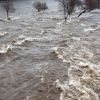 +25 +1
+25 +17 miles of California beaches closed after 250,000 gallons of sewage spill into the LA River
Water from the Los Angeles River connects to the Pacific Ocean in Long Beach, meaning pollution upriver can impact the city's coastal waters.
-
 +20 +1
+20 +1Emissions From Banned Ozone-Destroying Chemicals Are Mysteriously Rising
Thirty years after countries agreed to ease up on the use of chemicals damaging the ozone layer, there are promising signs that the ozone will be fully recovered by the 2060s. But we’re not out of the woods yet. A study published this month in Nature Geoscience shows that emissions from dangerous gases banned in the 1980s are actually on the rise today—with implications not only for the ozone layer but for climate change as well.
-
 +22 +1
+22 +1Over-consumption in the world’s richest countries is destroying children’s environments globally, new report says
The majority of wealthy countries are creating unhealthy, dangerous and noxious conditions for children across the world, according to the latest Report Card published today by UNICEF Office of Research - Innocenti.
-
 +20 +1
+20 +1Dozens of Democrats press Biden on soot pollution
A total of 88 House and Senate Democrats on Tuesday said the Biden administration’s proposed standards for soot air pollution are not stringent enough.
-
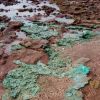 +15 +1
+15 +1'Horrifying' Plastic Rocks Emerge in Remote Island Paradise
There are few places on Earth as isolated as Trindade island, a volcanic outcrop a three- to four-day boat trip off the coast of Brazil.
-
 +13 +1
+13 +1Brazilian researchers find 'terrifying' plastic rocks on remote island
The geology of Brazil's volcanic Trindade Island has fascinated scientists for years, but the discovery of rocks made from plastic debris in this remote turtle refuge is sparking alarm.
-
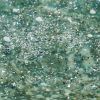 +20 +1
+20 +1Scientists sound the alarm as plastic waste forms rocks off coast of Brazil: ‘New and terrifying’
‘Pollution has reached geology’ says a scientist
-
 +21 +1
+21 +1Plastic pollution in oceans has reached 'unprecedented' levels in 15 years
Plastic pollution in the world's oceans has reached "unprecedented levels" over the past 15 years, a new study has found, calling for a legally binding international treaty to stop the harmful waste.
-
 +5 +1
+5 +1There are 21,000 pieces of plastic in the ocean for each person on Earth
A new study found far more plastic in global oceans than previously believed — and the amount is doubling every six years.
-
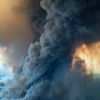 +19 +1
+19 +1Bushfire smoke eats up the ozone protecting us from dangerous radiation. The damage will increase as the world heats up
Over 30 years ago, the world banned CFC chemicals to save the ozone layer. But now, climate-fuelled bushfire smoke is putting it at renewed risk
-
 +18 +1
+18 +1Researchers Create Plastic Straws from Potato Starch
As the war on plastic straws rages on, researchers in Korea have created a bioplastic alternative that is made out of potato starch and citric acid. In a paper paper published in ACS Omega, the team says that these new straws are stronger than plastic and more durable than paper.
-
 +3 +1
+3 +1Health impact of tyre particles causing ‘increasing concern’, say scientists
Far more tiny particles now come from tyres than are emitted from exhausts but new tyre designs may help
-
 +16 +1
+16 +1Is air pollution causing us to lose our sense of smell?
For many people, a bout of Covid-19 gave a first taste (or rather a lack of it) of what it is like to lose their sense of smell. Known as "anosmia", loss of smell can have a substantial effect on our overall wellbeing and quality of life. But while a sudden respiratory infection might lead to a temporary loss of this important sense, your sense of smell may well have been gradually eroding away for years due to something else – air pollution.
-
 +22 +1
+22 +1India and Pakistan are choking on each other’s pollution
Fixing the problem will require countries that hate each other to co-operate
-
 +19 +1
+19 +1Environment groups call for urgent action on hazardous waste from e-cigarettes
Environment groups have called for urgent clarity and regulation to respond to an increase in hazardous waste from e-cigarettes, as vaping becomes more popular. The number of people using e-cigarettes doubled between 2016 and 2019, according to the federal government, with a survey showing more than 30% of 14- to 17-year-olds have tried vaping.
-
 +10 +1
+10 +1‘Remember me’: Ella’s law would be fitting legacy after London air pollution death, says mother
One of Ella’s dying wishes was that her siblings, who were really young, wouldn’t forget her and she also didn’t want her friends to forget her, obviously. She said to me: “‘Oh Mum. I hope they will remember me,” said Rosamund Kissi-Debrah recently. “I think Ella would like the fact that when you show her picture now, or you mention her name, most people know who she is.”
-
 +3 +1
+3 +1Nearly 14,000 Nigerians take Shell to court over devastating impact of pollution
People from Niger delta areas of Ogale and Bille seeking justice in London’s high court
-
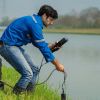 +13 +1
+13 +1PFAS: you can't smell, see or taste these chemicals, but they are everywhere – and they're highly toxic to humans
Humans perceive risk based largely on what we can see, smell and taste. Those senses serve us well when there are perceptible dangers to our health and the environment. We can see and smell raw sewage and as such it is widely perceived as a risk to human and environmental health. The increasing concern of scientists about the presence of antibiotic-resistant bacteria in sewage has confirmed its actual risk. The Environment Agency also reports that pollution from sewage discharge is a leading cause of poor river quality in England.
-
 +13 +1
+13 +1New York City's greenery absorbs a surprising amount of its carbon emissions
A study of vegetation across New York City and some densely populated adjoining areas has found that on many summer days, photosynthesis by trees and grasses absorbs all the carbon emissions produced by cars, trucks and buses, and then some. The surprising result, based on new hyper-local vegetation maps, points to the underappreciated importance of urban greenery in the carbon cycle. The study is published in the journal Environmental Research Letters.
-
 +10 +1
+10 +1Corrected ozone data estimate fracking and drilling produce more emissions than every Front Range vehicle
To explain Colorado's consistent smog problem, regulators and scientists often point to two main sources of local air pollution: traffic and oil and gas. Driving and fossil-fuel production both release large amounts of nitrogen oxides and volatile organic compounds, two categories of chemicals that react to form ozone when exposed to heat and sunlight.
Submit a link
Start a discussion




















